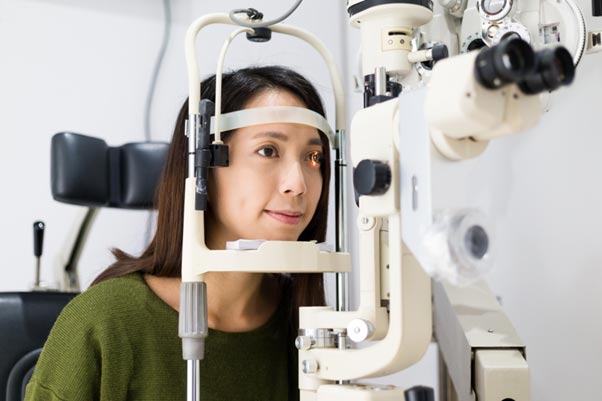10 Things to Know Before Cataract Surgery in Singapore
Cataract surgery is a common and highly effective procedure designed to restore vision impaired by cataracts. Cataracts occur when the natural lens of the eye becomes cloudy, leading to blurred vision, difficulty seeing at night, and sensitivity to light. This condition is often age-related but can also result from factors such as injury, medication, or certain medical conditions.

In Singapore, cataract surgery is widely available and performed by skilled ophthalmologists using advanced techniques and technologies. The procedure involves removing the cloudy lens and replacing it with a clear artificial lens, which helps to restore clear vision.
If you’re considering cataract surgery Singapore, it’s essential to be well-informed about the process, the benefits, and the potential risks. Understanding what to expect can ease worries and ensure readiness for both the surgery and the recovery phase. Here are ten essential things to know before undergoing cataract surgery, covering everything from recognizing symptoms to understanding the types of surgery available, selecting the right surgeon, and preparing for a successful outcome. This comprehensive guide aims to provide you with all the information you need to make an informed decision about your eye health and vision care.
1. Understanding Cataracts
Cataracts occur when the lens of your eye becomes cloudy, leading to vision impairment. This condition is often age-related but can also result from injury, certain medications, or other health issues.
Key Points:
- Causes of Cataracts: Ageing, trauma, prolonged use of steroids, diabetes, and excessive exposure to sunlight can cause cataracts.
- Symptoms of Cataracts: Symptoms include blurry or cloudy vision, difficulty seeing at night, sensitivity to light, seeing halos around lights, and frequent changes in eyeglass prescriptions.
- Importance of Early Detection: Early detection through regular eye exams can help manage cataracts effectively and prevent significant vision loss.
2. Symptoms of Cataracts

Recognizing the symptoms of cataracts is crucial in deciding when to seek medical advice. Common symptoms include:
- Blurry or cloudy vision
- Difficulty seeing at night
- Sensitivity to light and glare
- Seeing halos around lights
- Frequent changes in eyeglass or contact lens prescription
These symptoms can affect daily activities, making it essential to address them promptly.
3. When to Consider Cataract Surgery
Cataract surgery should be considered when cataracts begin to interfere with daily activities like reading, driving, or watching TV. Your eye doctor will help you determine the right time for surgery based on the severity of your symptoms and the impact on your lifestyle.
4. Types of Cataract Surgery
There are two main types of cataract surgery available in Singapore:
| Type of Surgery | Description |
| Phacoemulsification | The most common method where the lens is broken up using ultrasound waves and then removed. |
| Extracapsular | A larger incision is made to remove the cloudy lens in one piece. |
Phacoemulsification: This is the preferred method due to its smaller incision, quicker recovery time, and fewer complications. An ultrasound probe breaks up the cataract, which is then suctioned out.
Extracapsular Surgery: This method involves a larger incision to remove the lens in one piece. It is typically used in cases where the cataract is too dense for phacoemulsification.
5. Choosing the Right Surgeon
Selecting an experienced and qualified surgeon is crucial for a successful outcome. Consider the following factors:
- Surgeon’s Experience and Credentials: Check the surgeon’s qualifications, years of experience, and specialisation in cataract surgery.
- Patient Reviews and Testimonials: Look for reviews and testimonials from previous patients to gauge their satisfaction with the surgeon’s care.
- Surgeon’s Specialisation: Ensure the surgeon specialises in cataract surgery and stays updated with the latest techniques and technologies.
6. Preparing for the Surgery

Proper preparation is key to a smooth surgery and recovery. Follow these steps:
- Comprehensive Eye Examination: Undergo a thorough eye examination to assess the extent of the cataract and determine the best type of lens implant for you.
- Medical History Discussion: Discuss your medical history, including any medications you are taking, with your doctor.
- Transportation Arrangement: Arrange for someone to drive you home after the surgery as your vision may be temporarily impaired.
- Pre-Surgery Instructions: Follow any pre-surgery instructions provided by your doctor, such as fasting or avoiding certain medications.
7. Risks and Complications
While cataract surgery is generally safe, it’s important to be aware of potential risks and complications, including:
- Infection: To prevent infection, use prescribed antibiotic eye drops as directed.
- Bleeding: Although rare, bleeding can occur during or after surgery.
- Inflammation: Inflammation is common but usually manageable with medication.
- Swelling: Swelling of the cornea or retina can occur but is typically temporary.
- Retinal Detachment: This is a rare but serious complication that requires immediate medical attention.
8. Cost of Cataract Surgery in Singapore
The cost of cataract surgery in Singapore can vary depending on several factors, including the type of lens implant, the complexity of the procedure, and the clinic’s location. Here’s a general overview:
| Type of Lens Implant | Estimated Cost (SGD) |
| Monofocal Lens | $3,000 – $5,000 |
| Multifocal/Extended Depth Lens | $4,000 – $6,000 |
| Toric Lens (for astigmatism) | $4,500 – $7,000 |
Note: Prices can vary, so it’s advisable to get a detailed quote from your clinic. Consider factors like surgeon’s fees, facility charges, and the cost of post-surgery care.
9. Post-Surgery Care and Recovery
After the surgery, proper care and follow-up are essential for a successful recovery. Here are some tips:
- Use Prescribed Eye Drops: Use the prescribed antibiotic and anti-inflammatory eye drops to prevent infection and reduce inflammation.
- Avoid Strenuous Activities: Avoid heavy lifting and strenuous activities for a few weeks to allow your eye to heal properly.
- Protect Your Eye: Wear an eye shield while sleeping to protect your eye from accidental bumps or rubbing.
- Follow-Up Appointments: Attend all follow-up appointments with your surgeon to monitor your healing process and address any concerns.
10. Expected Outcomes and Benefits
Singapore cataract surgery has a high success rate, and most patients experience significant improvement in their vision. Benefits include:
- Clearer Vision: Improved clarity and sharpness of vision.
- Reduced Glare and Improved Night Vision: Easier to see in low light and less glare from lights.
- Better Quality of Life: Enhanced ability to perform daily activities and enjoy hobbies.
Conclusion
Cataract surgery Singapore is a well-established procedure with a high success rate. By understanding the process, choosing the right cataract surgeon Singapore, and following pre- and post-surgery instructions, you can ensure a positive outcome. If you have any concerns or questions, consult with Dr. David Goh, who is highly experienced in cataract surgery and dedicated to providing the best care for his patients.
By taking these steps, you can look forward to clearer vision and an improved quality of life.

